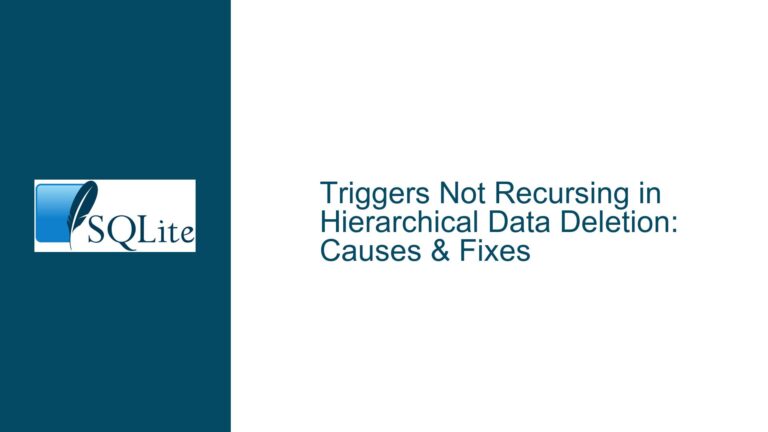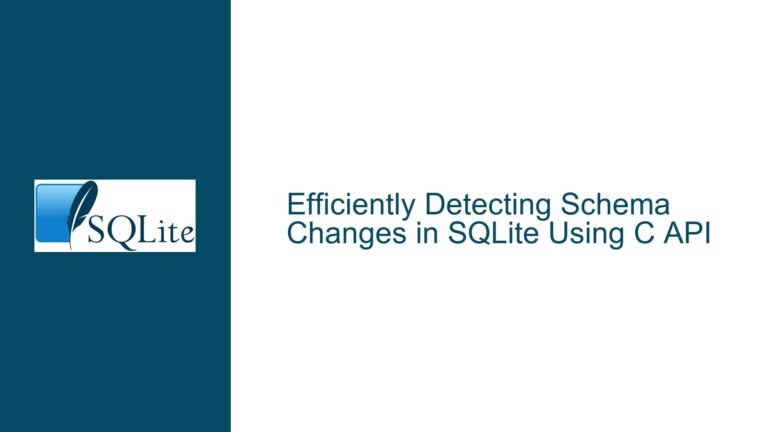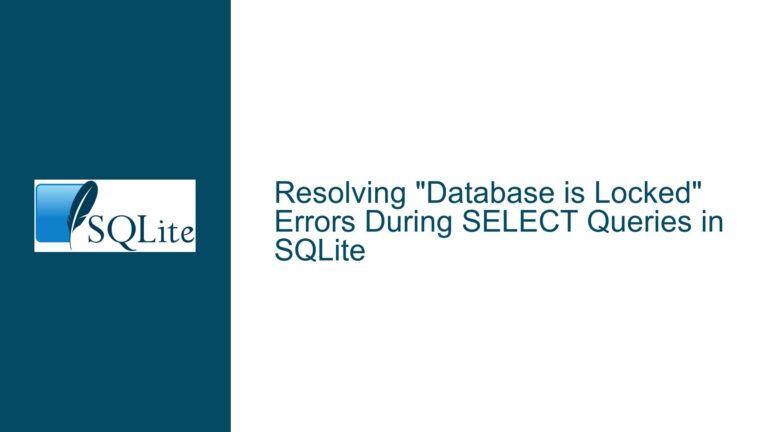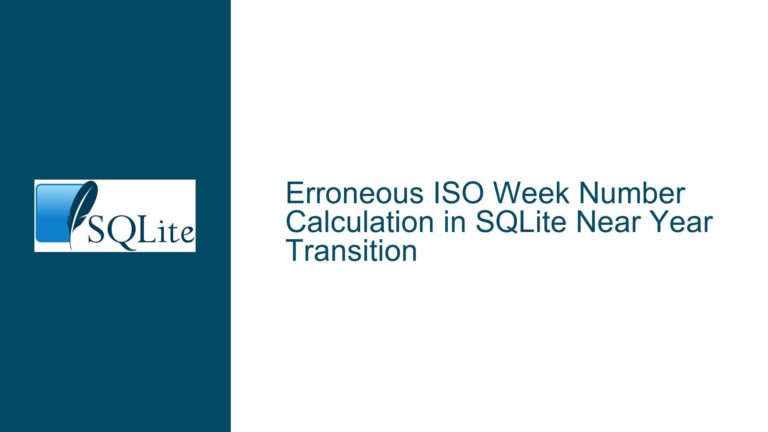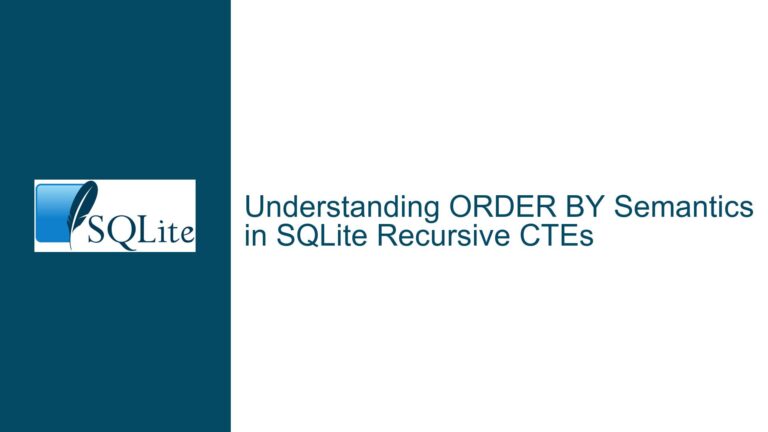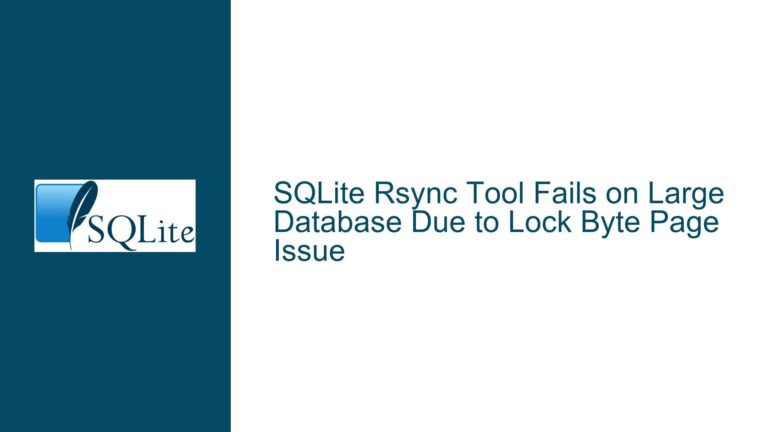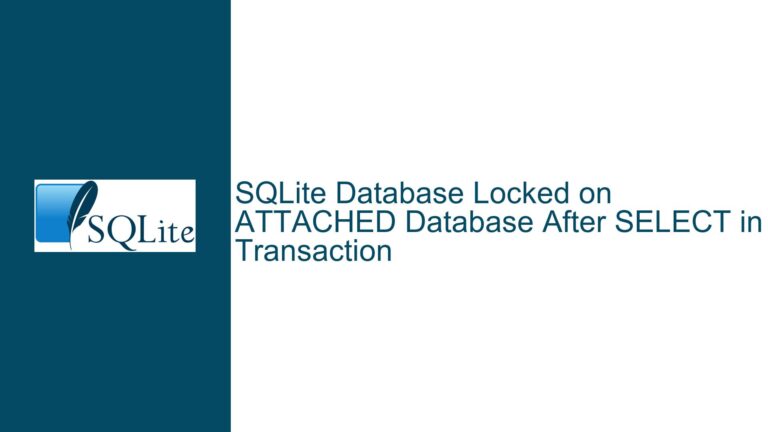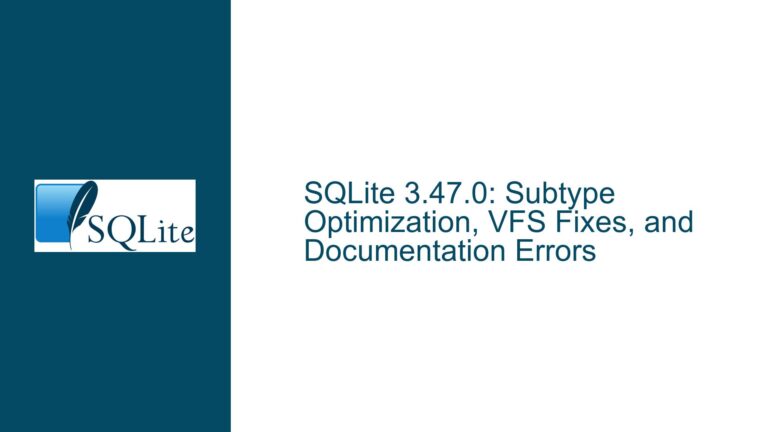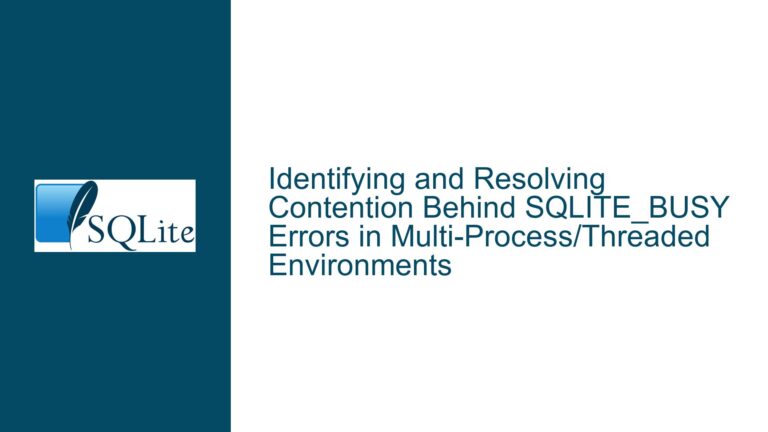Triggers Not Recursing in Hierarchical Data Deletion: Causes & Fixes
Understanding Trigger-Based Cascading Deletes in Hierarchical Structures Issue Overview: Non-Recursive Trigger Behavior During Hierarchical Data Deletion The core issue revolves around a hierarchical data model implemented in SQLite where a trigger is designed to perform cascading deletions. The table objects stores hierarchical relationships using parent and cntr_id columns, with item_id representing a unique identifier for…
